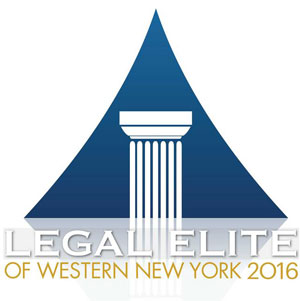Toxic mold is more than just an unsightly growth on the walls or ceilings of your apartment. It represents a significant health hazard that can lead to serious, sometimes chronic, illnesses. Mold spores are microscopic and can be easily inhaled, leading to respiratory problems, skin irritations, and other health issues. In severe cases, exposure to toxic mold can cause neurological symptoms, immune system suppression, and long-term lung damage. Given the potential risks, it is crucial to act promptly if you suspect that your apartment has a mold problem.
Recognizing the Signs of Toxic Mold
The first step in addressing a potential mold issue is recognizing the signs. Toxic mold often appears as black, green, or brown patches on walls, ceilings, or floors. It thrives in damp, humid environments, making bathrooms, kitchens, and basements particularly vulnerable. A musty odor is another common indicator of mold presence. Additionally, if you or your family members experience unexplained health issues such as persistent coughing, sneezing, headaches, or skin rashes, mold could be the underlying cause. Identifying these signs early is crucial for mitigating health risks and property damage.
Immediate Actions to Take
If you suspect mold in your apartment, it is essential to take immediate action. Start by documenting the mold with photographs and notes. This evidence can be crucial if you need to take legal action or file a complaint with your landlord. Next, contact your landlord or property management company to report the issue. They have a legal obligation to maintain a habitable living environment, which includes addressing mold problems. Ensure that your communication is in writing, as this creates a record of your complaint and the date you reported the problem.
Seeking Professional Assessment and Remediation
While landlords are responsible for addressing mold issues, it may be necessary to seek a professional assessment to understand the extent of the problem. Licensed mold inspectors can conduct thorough inspections and testing to determine the type and severity of the mold. This professional assessment is critical, especially in legal disputes, as it provides objective evidence of the mold problem. If mold is confirmed, professional remediation is often necessary. Mold remediation involves the removal of contaminated materials, thorough cleaning, and measures to prevent future mold growth. Professional remediation ensures that the mold is effectively and safely removed, reducing health risks and property damage.
Understanding Your Legal Rights
As a tenant, you have legal rights when it comes to mold issues in your apartment. New York laws mandate that landlords provide habitable living conditions, which includes addressing mold problems promptly and effectively. If your landlord fails to take appropriate action after being notified of the mold issue, you may have grounds for legal action. This could include withholding rent until the problem is resolved, breaking your lease without penalty, or suing for damages. Understanding your rights empowers you to take the necessary steps to protect your health and your home.
The team is very personable, patient and empathetic with their clients. They are upfront with you and will explain the entire process with you, they never lead you to believe otherwise, they tell you like it is and will not sell you a million dollar dream. Trust in Andrews, Bernstein & Maranto, PLLC, they work for you and he looks out for your best interest.” - Jane D.
Navigating the Legal Process
If your landlord fails to address the mold issue, you may need to take legal action. Begin by consulting with a lawyer who focuses in tenant rights and mold cases. They can provide guidance on the best course of action based on the specifics of your situation. Your lawyer may recommend sending a formal demand letter to your landlord, outlining the problem and your expectations for remediation. If this does not resolve the issue, your lawyer can help you file a complaint with the New York City Department of Housing Preservation and Development (HPD) or pursue a lawsuit for damages.
Preparing for Legal Action
To strengthen your case, it is essential to gather as much evidence as possible. This includes photographs of the mold, copies of all communication with your landlord, medical records if you or your family members have experienced health issues, and the report from the mold inspector. Detailed records will help establish the severity of the mold problem and your landlord’s failure to address it. Your lawyer will use this evidence to build a strong case and advocate for your rights.
Potential Outcomes and Compensation
Legal action can lead to various outcomes, depending on the specifics of your case. If successful, you may receive compensation for medical expenses, property damage, and other related costs. You might also be allowed to terminate your lease without penalty or receive a rent reduction until the mold issue is resolved. In some cases, the court may order your landlord to undertake specific actions to remediate the mold and prevent future problems. While legal action can be a lengthy and stressful process, it can also be an effective way to ensure your living environment is safe and healthy.
Preventing Future Mold Issues
Once the mold issue has been addressed, it is important to take steps to prevent future occurrences. Mold thrives in damp environments, so controlling moisture is key. Use dehumidifiers in damp areas, ensure proper ventilation in bathrooms and kitchens, and promptly repair any leaks or water damage. Regularly inspect your apartment for signs of mold and address any issues immediately. By taking proactive measures, you can help maintain a mold-free living environment and protect your health and property.
Should I Take The First Settlement Offer? Steps to File a Personal Injury ClaimRelated Videos
The Importance of Legal Support
Dealing with toxic mold in your apartment can be overwhelming, especially when navigating the legal aspects. Having legal support can make a significant difference. A knowledgeable lawyer can guide you through the process, ensuring your rights are protected and advocating on your behalf. They can help you understand your options, gather evidence, and pursue the best course of action for your situation. With the right legal support, you can address the mold issue effectively and secure a safe living environment for you and your family.
Verdicts & Settlements
Your Apartment Advocates
If you are facing a toxic mold issue in your apartment, do not navigate this challenging situation alone. Andrews, Bernstein & Maranto, PLLC is here to help. Our experienced team of attorneys understands the complexities of mold cases and is dedicated to protecting your rights and health. We will work tirelessly so that your landlord addresses the problem promptly and effectively. Contact us today for a consultation and take the first step towards a safe and healthy living environment. Your well-being is our priority, and we are committed to providing the legal support you need. Reach out to Andrews, Bernstein & Maranto, PLLC and let us help you reclaim your home from toxic mold.












